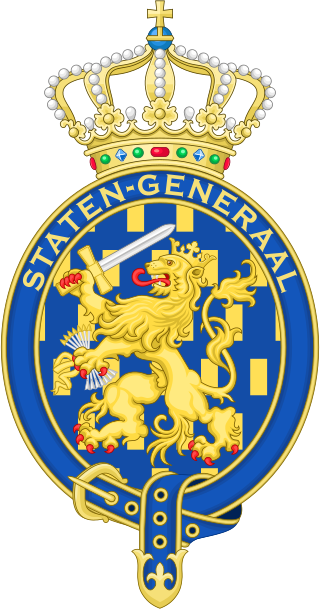
Naturalization is the legal act or process by which a non-national of a country acquires after birth the nationality of that country. The definition of the International Organization for Migration of the United Nations does not include automatic acquisition that is not initiated by the individual concerned or his or her legal agent or acquisition of nationality by declaration. It usually involves an application or a motion and approval by legal authorities. The rules of naturalization vary from country to country but typically include a promise to obey and uphold that country's laws and taking and subscribing to an oath of allegiance, and may specify other requirements such as a minimum legal residency and adequate knowledge of the national dominant language or culture. To counter multiple citizenship, some countries require that applicants for naturalization renounce any other citizenship that they currently hold, but whether this renunciation actually causes loss of original citizenship, as seen by the host country and by the original country, will depend on the laws of the countries involved.

Jus soli, meaning 'right of the soil', is the right of anyone born in the territory of a state to nationality or citizenship, also commonly referred to as birthright citizenship in some Anglophone countries, is a rule defining a person's nationality based on their birth in the territory of the country.

Italian nationality law is the law of Italy governing the acquisition, transmission and loss of Italian citizenship. Like many continental European countries it is largely based on jus sanguinis. It also incorporates many elements that are seen as favourable to the Italian diaspora. The Italian Parliament's 1992 update of Italian nationality law is Law no. 91, and came into force on 15 August 1992. Presidential decrees and ministerial directives, including several issued by the Ministry of the Interior, instruct the civil service how to apply Italy's citizenship-related laws.

Finish nationality law details the conditions by which an individual is a national of Finland. The primary law governing these requirements is the Nationality Act, which came into force on 1 June 2003. Finland is a member state of the European Union (EU) and all Finnish nationals are EU citizens. They are entitled to free movement rights in EU and European Free Trade Association (EFTA) countries and may vote in elections to the European Parliament.

Dutch nationality law details the conditions by which a person holds Dutch nationality. The primary law governing these requirements is the Dutch Nationality Act, which came into force on 1 January 1985. Regulations apply to the entire Kingdom of the Netherlands, which includes the country of the Netherlands itself, Aruba, Curaçao, and Sint Maarten.

Swedish nationality law determines entitlement to Swedish citizenship. Citizenship of Sweden is based primarily on the principle of jus sanguinis. In other words, citizenship is conferred primarily by birth to a Swedish parent, irrespective of place of birth.

Norwegian nationality law details the conditions by which an individual is a national of Norway. The primary law governing these requirements is the Norwegian Nationality Act, which came into force on 1 September 2006. Norway is a member state of the European Free Trade Association (EFTA) and the Schengen Area. All Norwegian nationals have automatic and permanent permission to live and work in any European Union (EU) or EFTA country.

The citizenship law of the Czech Republic is based on the principles of jus sanguinis or "right by blood". In other words, descent from a Czech parent is the primary method of acquiring Czech citizenship. Birth on Czech territory without a Czech parent is in itself insufficient for the conferral of Czech citizenship. Every Czech citizen is also a citizen of the European Union. The law came into effect on 1 January 1993, the date of the dissolution of Czechoslovakia, and has been amended in 1993, 1995, 1996, 1999, 2002, 2003, and 2005. Since 1 January 2014, multiple citizenship under Czech law is allowed.

Polish nationality law is based primarily on the principle of jus sanguinis. Children born to at least one Polish parent acquire Polish citizenship irrespective of place of birth. Besides other things, Polish citizenship entitles the person to a Polish passport.

Slovenian nationality law is based primarily on the principles of jus sanguinis, in that descent from a Slovenian parent is the primary basis for acquisition of Slovenian citizenship. However, although children born to foreign parents in Slovenia do not acquire Slovenian citizenship on the basis of birthplace, place of birth is relevant for determining whether the child of Slovenian parents acquires citizenship.

Hungarian nationality law is based on the principles of jus sanguinis. Hungarian citizenship can be acquired by descent from a Hungarian parent, or by naturalisation. A person born in Hungary to foreign parents does not generally acquire Hungarian citizenship. A Hungarian citizen is also a citizen of the European Union.

Brazilian nationality law details the conditions by which a person is a national of Brazil. The primary law governing nationality requirements is the 1988 Constitution of Brazil, which came into force on 5 October 1988.

Nationality law of Greece is based on the principle of jus sanguinis. Greek citizenship may be acquired by descent or through naturalization. Greek law permits dual citizenship. A Greek national is a citizen of the European Union, and therefore entitled to the same rights as other EU citizens.

Lithuanian nationality law operates on the jus sanguinus principle, whereby persons who have a claim to Lithuanian ancestry, either through parents, grandparents, great-grandparents may claim Lithuanian nationality. Citizenship may also be granted by naturalization. Naturalization requires a residency period, an examination in the Lithuanian language, examination results demonstrating familiarity with the Lithuanian Constitution, a demonstrated means of support, and an oath of loyalty. A right of return clause was included in the 1991 constitution for persons who left Lithuania after the Soviet occupation in 1940 and their descendants. Lithuanian citizens are also citizens of the European Union and thus enjoy rights of free movement and have the right to vote in elections for the European Parliament.
Portuguese Luxembourgers, also known as Luso-Luxembourgers, are the citizens or residents of Luxembourg whose ethnic origins lie in Portugal, including both Portuguese-born citizens with Luxembourg citizenship and Luxembourg-born citizens of Portuguese ancestry or citizenship.

Estonian citizenship law details the conditions by which a person is a citizen of Estonia. The primary law currently governing these requirements is the Citizenship Act, which came into force on 1 April 1995.

A Luxembourgish passport is an international travel document issued to nationals of the Grand Duchy of Luxembourg, and may also serve as proof of Luxembourgish citizenship. Besides enabling the bearer to travel internationally and serving as indication of Luxembourgish citizenship, the passport facilitates the process of securing assistance from Luxembourg consular officials abroad or other European Union member states in case a Luxembourg consular is absent, if needed.

Danish nationality law is governed by the Constitutional Act and the Consolidated Act of Danish Nationality. Danish nationality can be acquired in one of the following ways:

Slovak nationality law is the law governing the acquisition, transmission and loss of Slovak citizenship. The Citizenship Act is a law enacted by the National Council of Slovakia in regard to the nationality law following the dissolution of Czechoslovakia. In 2010, it was controversially amended, enacting loss of Slovak citizenship upon naturalization elsewhere. This was said to have affected the 2012 election to some degree.

Albanian nationality law is based on a mixture of the principles of Jus sanguinis and Jus soli. In other words, both place of birth and Albanian parentage are relevant for determining whether a person is an Albanian citizen. It is regulated by the "Law on Albanian Citizenship". In some circumstances citizenship is granted to children born in Albania to non-Albanian parents. This is not the case where parents are temporary or short-term visitors. As suggested by the United Nations and Council of Europe, all efforts are made in order to avoid statelessness.




















